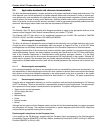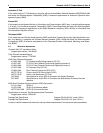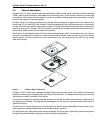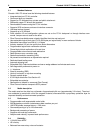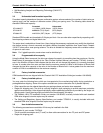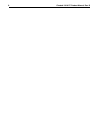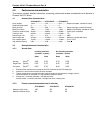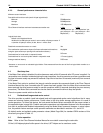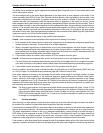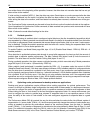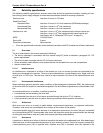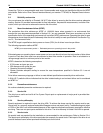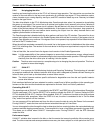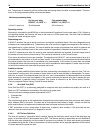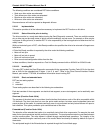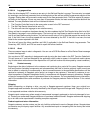
Cheetah 10K.6 FC Product Manual, Rev. B 11
The buffer can be divided into logical segments (using Mode Select Page 08h, byte 13) from which data is read
and to which data is written.
The drive keeps track of the logical block addresses of the data stored in each segment of the buffer. If the
cache is enabled (see RCD bit in the
Fibre Channel Interface Manual
), data requested by the host with a read
command is retrieved from the buffer, if possible, before any disc access is initiated. If cache operation is not
enabled, the buffer (still segmented with the required number of segments) is still used, but only as circular
buffer segments during disc medium read operations (disregarding Prefetch operation for the moment). That is,
the drive does not check in the buffer segments for the requested read data, but goes directly to the medium to
retrieve it. The retrieved data merely passes through some buffer segment on the way to the host. On a cache
miss, all data transfers to the host are in accordance with buffer-full ratio rules. On a cache hit, the drive ignores
the buffer-full ratio rules. See the explanation provided with the information about Mode Page 02h (disconnect/
reconnect control) in the
Fibre Channel Interface Manual
.
The following is a simplified description of the prefetch/cache operation:
Case A—read command is received and the first logical block is already in the cache:
1. Drive transfers to the initiator the first logical block requested plus all subsequent contiguous logical blocks
that are already in the cache. This data may be in multiple segments.
2. When a requested logical block is reached that is not in any cache segment, the drive fetches it and any
remaining requested logical block addresses from the disc and puts them in a segment of the cache. The
drive transfers the remaining requested logical blocks from the cache to the host in accordance with the
Mode Select Disconnect/Reconnect parameters, page 02h.
3. If the prefetch feature is enabled, refer to section 4.5.2 for operation from this point.
Case B—A Read command requests data, and the first logical block is not in any segment of the cache:
1. The drive fetches the requested logical blocks from the disc and transfers them into a segment, and then
from there to the host in accordance with the Mode Select Disconnect/Reconnect parameters, page 02h.
2. If the prefetch feature is enabled, refer to section 4.5.2 for operation from this point.
During a prefetch, the drive crosses a cylinder boundary to fetch data only if the Discontinuity (DISC) bit is set
to 1 in bit 4 of byte 2 of the Mode Select parameters page 08h. Default is zero for bit 4.
Each cache segment is actually a self-contained circular buffer whose length is an integer number of logical
blocks. The wrap-around capability of the individual segments greatly enhances the cache’s overall perfor-
mance, allowing a wide range of user-selectable configurations. The drive supports operation of any integer
number of segments from 1 to 32. Divide the 6,877 Kbytes in the buffer by the number of segments to get the
segment size in bytes; then divide by the sector size to get the number of sectors per segment, any partial sec-
tors remaining are not used. Default is 3 segments.
Note. The size of each segment is not reported by Mode Sense command page 08h, bytes 14 and 15. The
value 0XFFFF is always reported regardless of the actual size of the segment. Sending a size specifi-
cation using the Mode Select command (bytes 14 and 15) does not set up a new segment size. If the
STRICT bit in Mode page 00h (byte 2, bit 1) is set to one, the drive responds as it does for any attempt
to change an unchangeable parameter.
4.5.1 Caching write data
Write caching is a write operation by the drive that makes use of a drive buffer storage area where the data to
be written to the medium is stored while the drive performs the Write command.
If read caching is enabled (RCD=0), then data written to the medium is retained in the cache to be made avail-
able for future read cache hits. The same buffer space and segmentation is used as set up for read functions.
The buffer segmentation scheme is set up or changed independently, having nothing to do with the state of
RCD. When a write command is issued, if RCD=0, the cache is first checked to see if any logical blocks that
are to be written are already stored in the cache from a previous read or write command. If there are, the
respective cache segments are cleared. The new data is cached for subsequent Read commands.
If the number of write data logical blocks exceed the size of the segment being written into, when the end of the
segment is reached, the data is written into the beginning of the same cache segment, overwriting the data that



